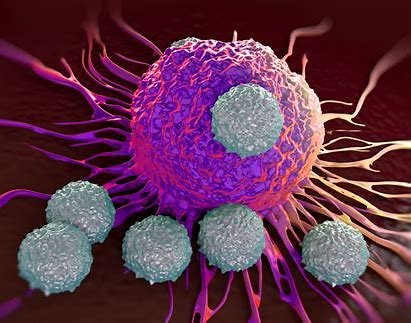Dizal to Present New Findings on Golidocitinib-PD-1 Combo and Sunvozertinib-Anlotinib Therapy at ELCC 2025
21 March 2025 | Friday | News

Image Source : Public Domain
Dizal (SSE: 688192), a biopharmaceutical company committed to developing novel medicines for the treatment of cancer and immunological diseases, announced new findings on golidocitinib, a first-in-class Janus kinase 1 (JAK1) only inhibitor, in combination with PD-1 antibodies for patients who have progressed on anti-PD-1 therapy. The details of the trial design and clinical results will be presented at the 2025 European Lung Cancer Congress (ELCC 2025) in Paris, March 26-29.
Recent studies showed that the dysregulated activation of the JAK/STAT pathway, which leads to the prolonged release of IFN-γ, is a significant contributor to the resistance to immune checkpoint inhibitors in cancer immunotherapy. Preclinical and clinical studies have demonstrated that the combination of JAK inhibitors with PD-1 immunotherapy can reverse or delay onset of immunotherapy resistance by modulating the JAK/STAT pathway in Hodgkin's lymphoma and NSCLC. Golidocitinib has shown excellent clinical benefits by effectively inhibiting the JAK/STAT pathway, leading to its approval for the treatment of relapsed/refractory peripheral T-cell lymphoma (r/r PTCL) in China. Preclinical studies also show that the combination of Golidocitinib and PD-1 antibody has synergistic potentials for anti-tumor effects.
Building on these findings, an exploratory phase Ib clinical study combining golidocitinib with PD-1 antibodies was designed to explore the synergistic effects of this combined regimen in NSCLC patients who have failed from anti-PD-1 containing regimens. This study will enroll 30 locally advanced or metastatic NSCLC patients who have previously received anti-PD-1 monotherapy or anti-PD-1 therapy with platinum-containing chemotherapy regimens.
"Immunotherapy alone or with chemotherapy is commonly used as front line treatment for NSCLC patients without driver mutations. Unfortunately, resistance is inevitable and once the disease progresses, the prognosis is poor and treatment option is limited." said Xiaolin Zhang, PhD, CEO of Dizal. "The findings we are presenting at ELCC 2025 highlight the potential for Golidocitinib-based combination regimen to delay or overcome the resistance. The preliminary results are very promising and justify further clinical validation."
In addition to the golidocitinib-based combination therapy, positive results from a Phase II study of sunvozertinib in combination with Anlotinib will also be presented. Sunvozertinib combined with anlotinib was well tolerated and demonstrated encouraging antitumor activity in NSCLC patients with EGFR mutations who had failed prior EGFR-TKI therapies. As of December 25, 2024, the objective response rate (ORR) and the disease control rate (DCR) were 33.3% and 100%, respectively, in this heavily pre-treated patient population
Most Read
- How Does GLP-1 Work?
- Innovations In Magnetic Resonance Imaging Introduced By United Imaging
- Management of Relapsed/Refractory Multiple Myeloma
- 2025 Drug Approvals, Decoded: What Every Biopharma Leader Needs to Know
- BioPharma Manufacturing Resilience: Lessons From Capacity Expansion and Supply Chain Resets from 2025
- APAC Biopharma Review 2025: Innovation, Investment, and Influence on the Global Stage
- Top 25 Biotech Innovations Redefining Health And Planet In 2025
- The New AI Gold Rush: Western Pharma’s Billion-Dollar Bet on Chinese Biotech
- Single-Use Systems Are Rewiring Biopharma Manufacturing
- The State of Biotech and Life Science Jobs in Asia Pacific – 2025
- Asia-Pacific Leads the Charge: Latest Global BioSupplier Technologies of 2025
- Invisible Threats, Visible Risks: How the Nitrosamine Crisis Reshaped Asia’s Pharmaceutical Quality Landscape
Bio Jobs
- Sanofi Turns The Page As Belén Garijo Steps In And Paul Hudson Steps Out
- Global Survey Reveals Nearly 40% of Employees Facing Fertility Challenges Consider Leaving Their Jobs
- BioMed X and AbbVie Begin Global Search for Bold Neuroscience Talent To Decode the Biology of Anhedonia
- Thermo Fisher Expands Bengaluru R&D Centre to Advance Antibody Innovation and Strengthen India’s Life Sciences Ecosystem
- Accord Plasma (Intas Group) Acquires Prothya Biosolutions to Expand Global Plasma Capabilities
- ACG Announces $200 Million Investment to Establish First U.S. Capsule Manufacturing Facility in Atlanta
- AstraZeneca Invests $4.5 Billion to Build Advanced Manufacturing Facility in Virginia, Expanding U.S. Medicine Production
News











